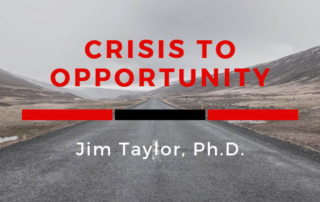Crisis to Opportunity Podcast: Episode #34-Uncertain to Decisive
Episode #34: Uncertain to Decisive of my Crisis to Opportunity podcast is the second of four in which I will wrap up my podcast by exploring how to take everything you’ve learned in this podcast and prepare you to take action that will help you positively confront and, hopefully, overcome the crisis you are faced with. Uncertainty is [...]


